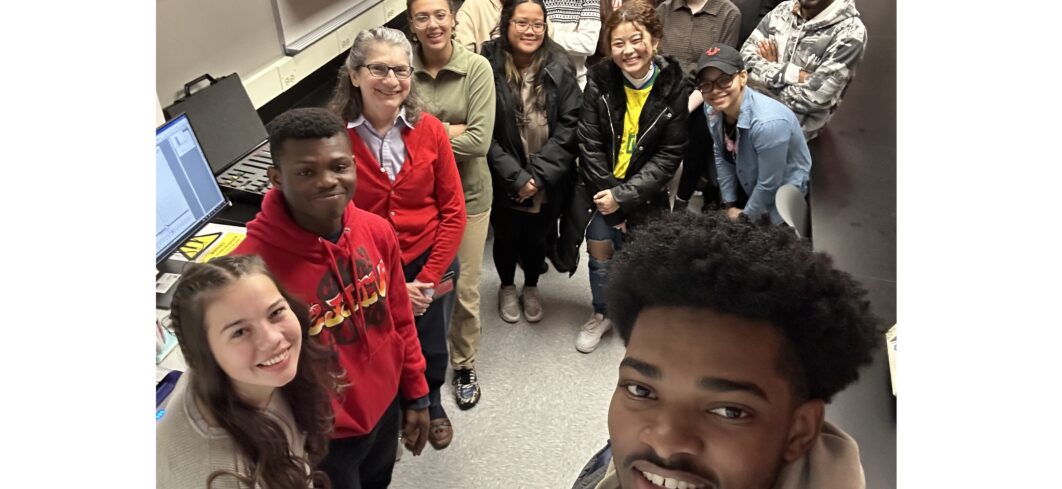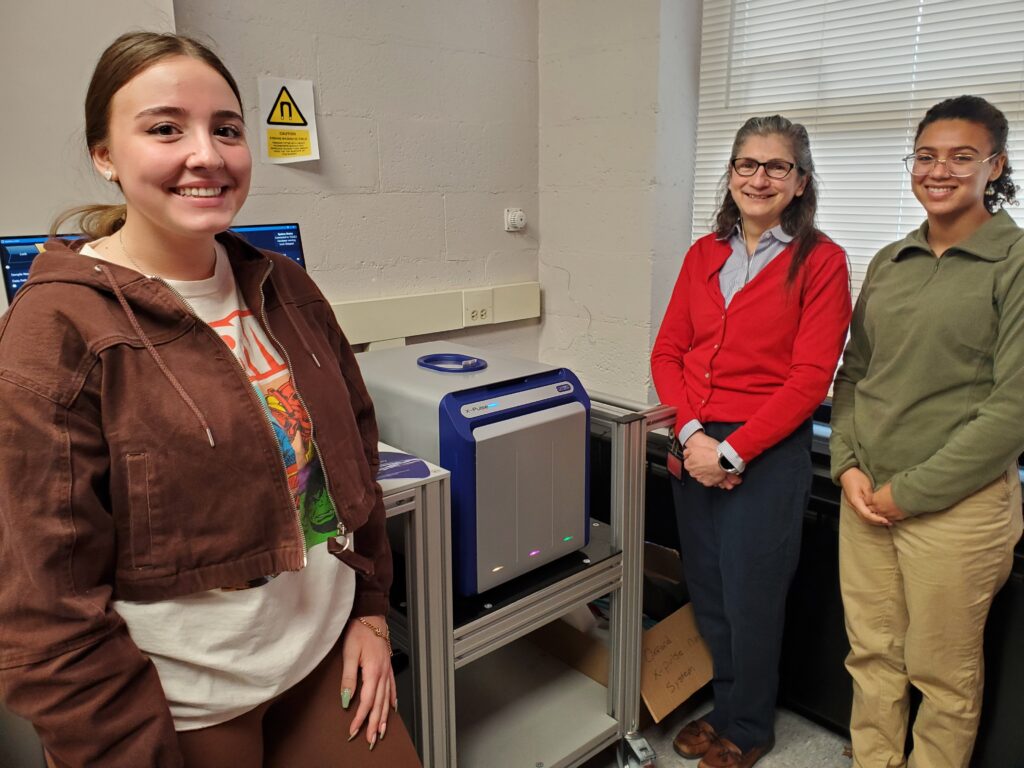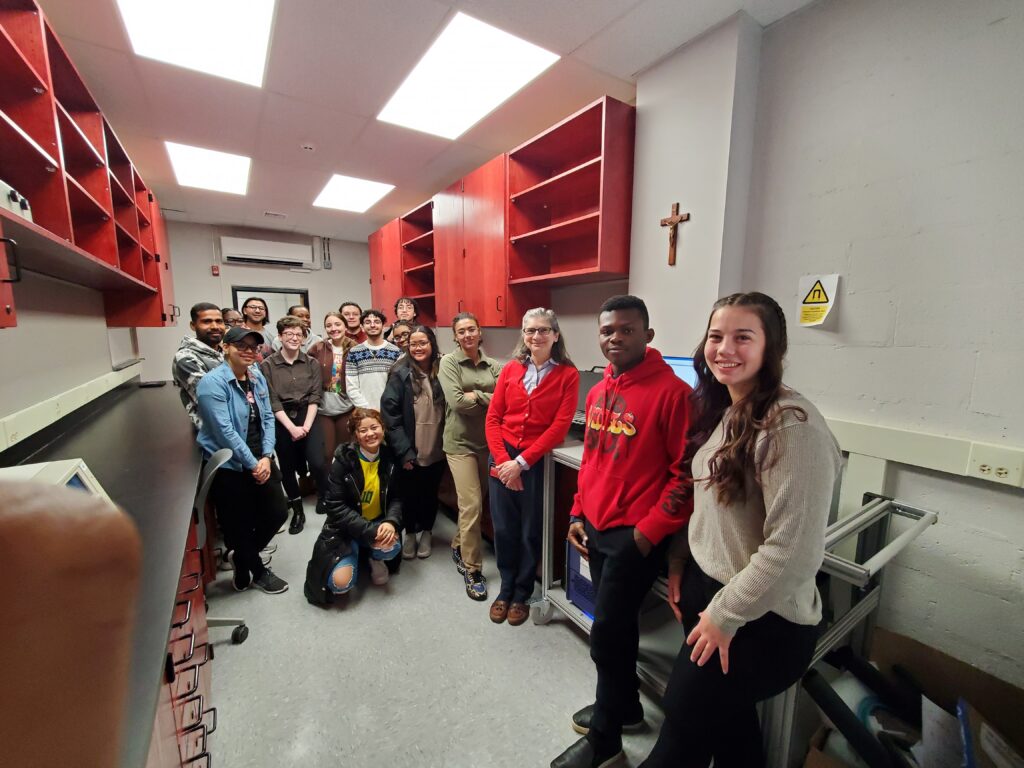Caldwell University
January 31, 2023
Science Professor Marjorie Squires: Expanding Student Research

Natural Sciences students and faculty members are excited to start the semester with a renovated science laboratory equipped with a new instrument, the NMR (nuclear magnetic resonance) spectrometer. The addition will enable faculty in the School of Natural Sciences to expand research opportunities for chemistry and biology students.
Chemistry Professor Marjorie Squires says the instrument is critical to understanding organic chemistry and having students do experiments examining the structure of organic molecules. “We picked this particular instrument because most NMR do protons and carbon, but this one can do a very large range of nuclei.” The instrument will enable students to more precisely analyze samples and to conduct research at a higher level.
Samuel Annan and Paige Silvia, students majoring in biology with chemistry minors, were very pleased to see that the NMR is in. “I really need this skill in the research I am doing…It means now research is going to be extremely fun and exciting,” said Annan. Silvia said the NMR is important to helping her prepare for her future–“so when I go to the next level I’ll be able to have this skill set under my belt.”
The purchase was made possible through a grant the University received from the U.S. Department of Education’s Hispanic-Serving Institutions STEM and articulation program.
Students will use the NMR in various courses including Squires’s analytical chemistry class. She will make it available to students in the comprehensive independent research program, in which students first learn how to read and evaluate scientific papers and devise their own research proposals. Then, they submit their proposals, including a budget, to the Independent College Fund of New Jersey (ICUNJ), which funds some of the student projects.
After the students conduct their research and analyze their data, they will prepare posters and slideshows and will then present their work at Caldwell’s annual Research and Creative Arts Day and local and regional research symposia, such as those sponsored by the ICUNJ, William Paterson University, the New Jersey Academy of Science and the American Chemical Society’s mid-Atlantic chapter. “You’ve done it. Send it everywhere,” Squires tells her students. The symposia provide opportunities for students to share their work with others and gain confidence in presenting. Earlier this year Annan and biology major Azia McKenzie were selected to receive the ICUNJ funding.
Along with her colleagues in the School of Natural Sciences, Squires is committed to advancing these kinds of professional development opportunities for their students and making sure they have what they need to pursue their fields of interest. “We all give our students … sound advice that will help them reach their goals.”

Squires is the advisor for the American Chemical Society chapter on campus. Students interact with other chapters around the country, hear from professionals and host fun activities like an event held last year at Liberty Science Center for elementary school children.
Many of Squires’s chemistry students have gone on to graduate schools, with recent alums on the Ph.D. or master’s track at Penn State, Montclair State University, and the University of Delaware. Other graduates have become educators or professionals in the industry, conducting laboratory work. The job market is good for chemistry graduates, Squires said, including work in fields such as biochemistry, pharmaceuticals, cosmetics, food and flavor, environmental law, and business.
When Squires was completing graduate school, she was not sure whether she should work in a lab, which she loved, or teach. She decided to go with the field where she first got a job, which was in teaching. That was “kind of a surprise because they are harder to get,” said Squires. Now, years later, she can point to many gratifying moments in education, especially when she works with students who are struggling and they have “aha moments,” confront challenges and overcome obstacles. To see her students grow makes it all worthwhile. “It is like watching a flower bloom … It just makes my soul sing.”






